African Artist Spotlight Series: The Evocative Universe of Zanele Muholi
In the vibrant landscape of contemporary African art, the African Artist Spotlight Series seeks to illuminate the work of groundbreaking creators who have transcended borders and inspired a global audience. One such artist is Zanele Muholi, a South African visual activist whose deeply personal and political artwork has captivated the world. Drawing from a rich tapestry of life experiences, Muholi crafts evocative portraits that speak to the human condition while simultaneously challenging societal norms. In this journal, we delve into the evocative universe of Zanele Muholi, exploring their artistic style, themes, and the lasting impact of their work on the art world and society.
Zanele Muholi’s Early Life and Influences
Born in Umlazi, a township on the outskirts of Durban, South Africa, in 1972, Zanele Muholi grew up amid the country’s tumultuous era of apartheid. This oppressive regime deeply influenced the young artist, instilling a desire to use their art as a form of resistance against inequality and injustice. Muholi’s family, particularly their mother, was a vital source of support and encouragement, fostering an appreciation for creativity and self-expression.
Muholi’s artistic journey began with a foray into graphic design, but it was ultimately their exposure to photography that would define their career. Studying Advanced Photography at the Market Photo Workshop in Johannesburg and later receiving a Master of Fine Arts from Ryerson University in Toronto, Muholi honed their skills and developed a unique visual language.
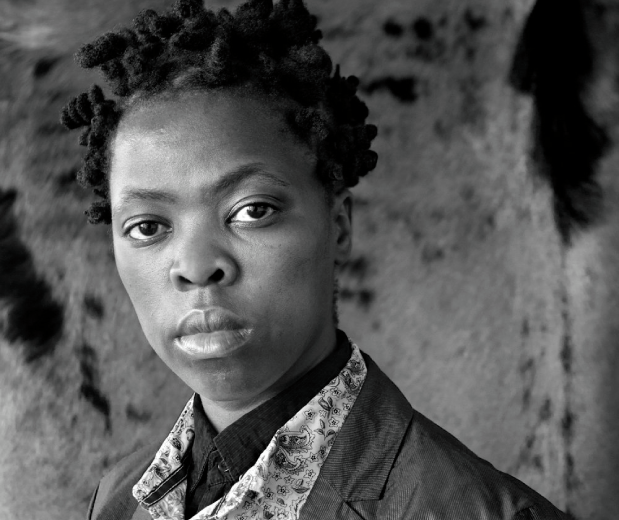
Muholi’s Artistic Style and Techniques
Photography, with its capacity for intimate representation and wide dissemination, became the perfect medium for Muholi’s activism. Their work, often characterized by striking black-and-white images, utilizes portraiture to explore themes of identity, challenging viewers to confront their own biases and preconceptions.
In crafting their portraits, Muholi employs a careful balance of light and shadow, juxtaposing the subject’s features against contrasting backgrounds to create an arresting visual effect. Their attention to detail extends to the styling and costuming of their subjects, incorporating culturally significant materials and textures to imbue the images with layers of meaning.
Themes and Subject Matter in Muholi’s Artwork
At the heart of Muholi’s work lies a deep commitment to representing the LGBTQIA+ community in South Africa, particularly black individuals who face unique challenges due to the intersection of race, gender, and sexuality. By providing a platform for these marginalized voices, Muholi’s work serves both a personal and political purpose, offering visibility and validation to those who have been historically silenced.
In addition to their focus on LGBTQIA+ representation, Muholi’s work examines broader themes of identity, challenging societal norms and expectations surrounding gender and sexuality. Their portraits often subvert conventional notions of beauty and desirability, presenting subjects who embody a diverse range of experiences and self-expression.
Major Works and Series by Zanele Muholi
Muholi’s oeuvre is marked by several significant series that reflect their commitment to social justice and representation.
Faces and Phases
One of their most iconic series, Faces and Phases, comprises over 250 portraits of black LGBTQIA+ individuals from South Africa and beyond. Launched in 2006, this ongoing project seeks to document the lives and experiences of its subjects, creating an archive of stories that have often been excluded from mainstream history. Each portrait in the series is an intimate exploration of identity, showcasing the resilience and strength of the LGBTQIA+ community in the face of adversity.
A particularly poignant example from Faces and Phases is the portrait of Busi Sigasa, a poet and activist who passed away from AIDS-related complications in 2007. The photograph captures Sigasa’s quiet dignity and determination, immortalizing her spirit and serving as a testament to her contributions to the struggle for LGBTQIA+ rights in South Africa.
Brave Beauties
Another significant series in Muholi’s body of work is Brave Beauties, which celebrates the beauty and resilience of transgender individuals. Through these powerful portraits, Muholi seeks to challenge societal norms surrounding gender and to offer a platform for their subjects to express their true selves.
One striking image from this series features trans activist and model Yaya Mavundla, adorned with traditional Zulu accessories, her gaze meeting the viewer’s with a sense of pride and defiance. The photograph not only showcases Mavundla’s beauty but also asserts her place within her cultural heritage, breaking down barriers between gender identity and cultural belonging.
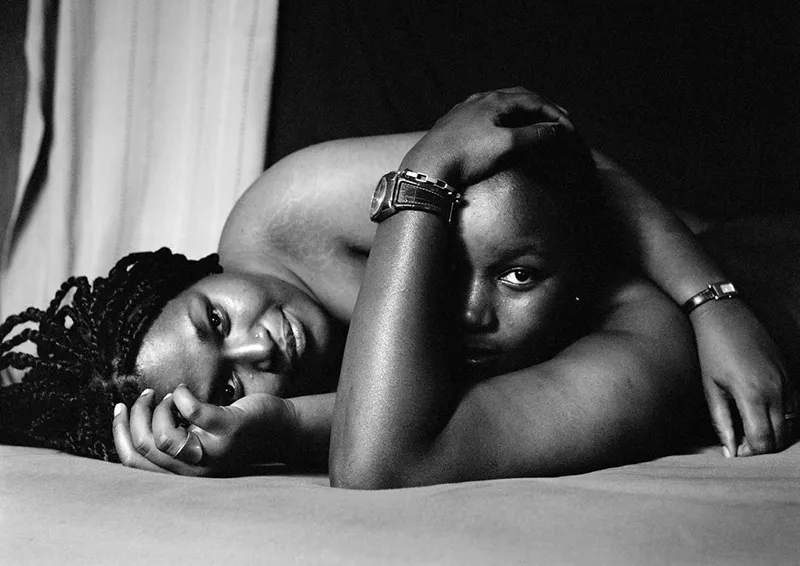
Somnyama Ngonyama
In the self-portrait series Somnyama Ngonyama (which translates to “Hail the Dark Lioness”), Muholi turns the camera on themselves, confronting the politics of race and representation. Featuring over 80 photographs, the series sees Muholi adopting various personas and guises, often using everyday objects such as rubber gloves, clothespins, or plastic bags as props to create striking visual compositions.
One notable image, titled “Bester I,” features Muholi with their hair adorned in clothespins, a reference to their mother who worked as a domestic worker. The portrait is a powerful exploration of labor, race, and personal history, highlighting the experiences of black women in South Africa.
The Impact of Muholi’s Work on the Art World and Society
Zanele Muholi’s work has garnered international recognition and acclaim, with exhibitions in prestigious institutions such as the Tate Modern in London, the Guggenheim Museum in New York, and the Centre Pompidou in Paris. Their unique visual language and unflinching commitment to social justice have not only expanded the boundaries of contemporary African art but also left an indelible mark on the global art community.
Muholi’s work has played a crucial role in raising awareness of LGBTQIA+ issues in South Africa and beyond, providing a platform for marginalized voices and shining a light on the challenges faced by this community. Their influence can be felt in the work of other artists who have taken up the mantle of activism and representation, creating a ripple effect of inspiration and social change.
The Role of Technology and Social Media in Expanding the Reach and Impact of African Artists
In today’s digitally connected world, technology and social media play an increasingly significant role in expanding the reach and impact of artists like Zanele Muholi. By utilizing platforms such as Instagram, Twitter, and Facebook, Muholi and their contemporaries are able to share their work with a global audience, sparking conversations and fostering connections that transcend geographical boundaries. This widespread accessibility has not only elevated the profile of African art on the global stage but also allowed for a more inclusive and diverse artistic dialogue.
A Deeper Analysis of Muholi’s Artistic Techniques
While this journal has touched upon Muholi’s distinctive use of black-and-white photography and their attention to detail in styling and costuming, there is much more to explore in terms of their artistic techniques. A deeper examination of their choice of lighting, composition, and materials would offer valuable insights into the visual language that defines their work, shedding light on how these elements contribute to the overall impact and resonance of their portraits.
Comparative Study of Other African Artists Engaging with Identity, Representation, and Social Justice
Zanele Muholi is just one of many African artists whose work engages with themes of identity, representation, and social justice. A comparative study of artists such as Yinka Shonibare, Wangechi Mutu, and Mary Sibande, among others, would offer a broader understanding of the diverse approaches to these themes within contemporary African art. By examining the similarities and differences in their work, we can better appreciate the richness and complexity of the discourse surrounding identity and representation in African art.
Investigating the Support Systems, Networks, and Resources Available to African Artists
The success of artists like Zanele Muholi is shaped not only by their talent and vision but also by the support systems, networks, and resources available to them. An investigation into the infrastructure supporting African artists, both within their home countries and internationally, would provide valuable insights into the challenges and opportunities they face in their careers. This might include an exploration of artist residencies, grants, exhibition opportunities, and educational programs, as well as the role of cultural institutions, galleries, and collectors in promoting and supporting African art.
Utilizing the Work of Artists like Muholi in Educational and Community Settings
The deeply personal and political nature of Zanele Muholi’s work lends itself well to fostering dialogue and understanding in educational and community settings. By incorporating their artwork and the work of other socially engaged artists into curricula, workshops, and public programs, educators and community leaders can facilitate conversations about identity, representation, and social justice. This approach has the potential to not only increase awareness and appreciation of contemporary African art but also to promote empathy, understanding, and social change.
In conclusion, the evocative universe of Zanele Muholi stands as a testament to the power of art as a tool for activism and social change. Their deeply personal and political artwork has carved a unique space within the realm of contemporary African art, challenging viewers to confront their biases and prejudices while simultaneously offering visibility and validation to marginalized communities.
As we continue to explore and appreciate the work of African artists, it is essential to recognize the contributions of visionaries like Zanele Muholi, who have pushed boundaries and demonstrated the transformative potential of art. By honoring their legacy and delving deeper into the topics and avenues outlined above, we not only celebrate the rich diversity of African creativity but also bear witness to the power of art as an agent of change and a catalyst for a more inclusive and just society.
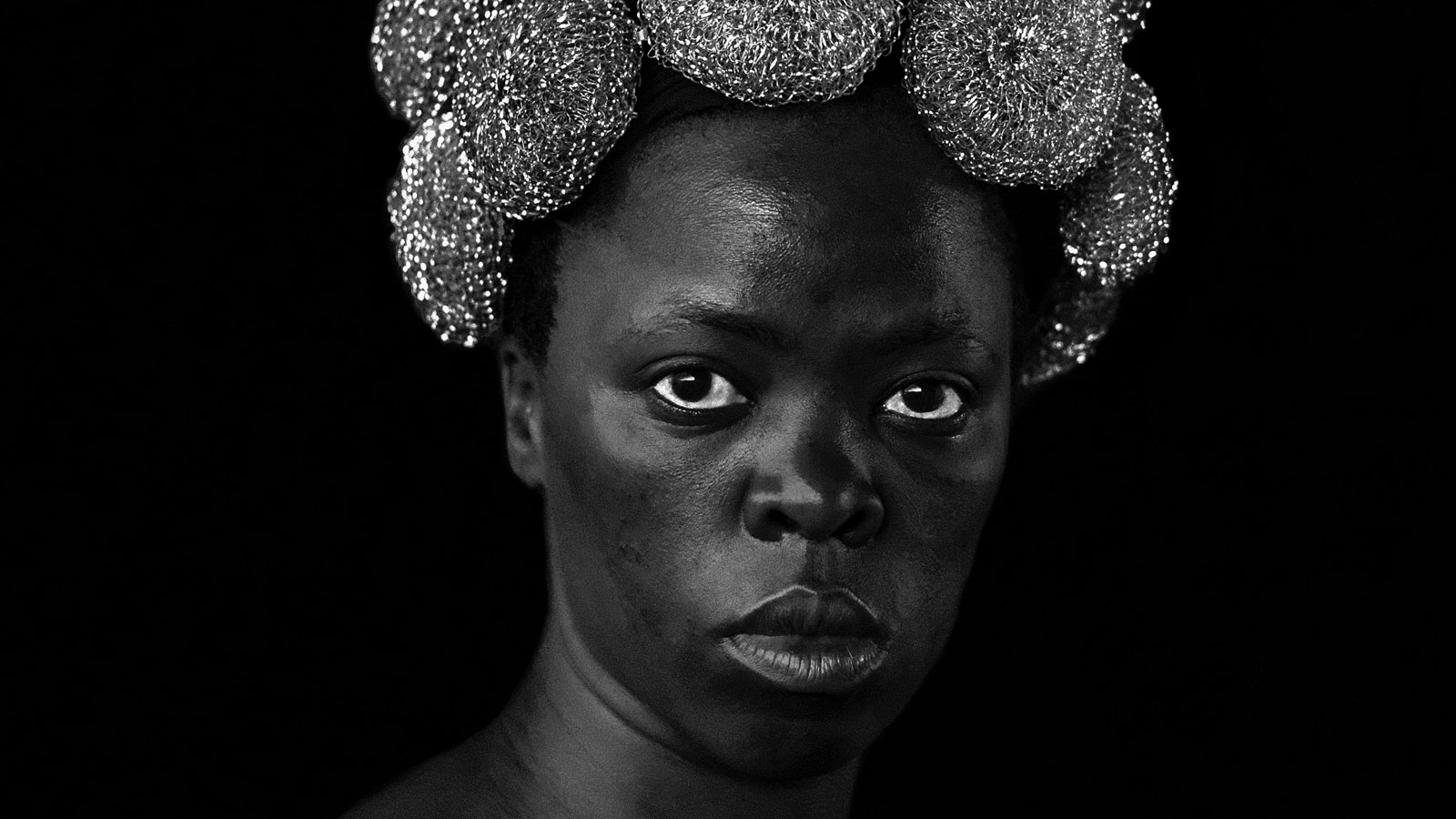

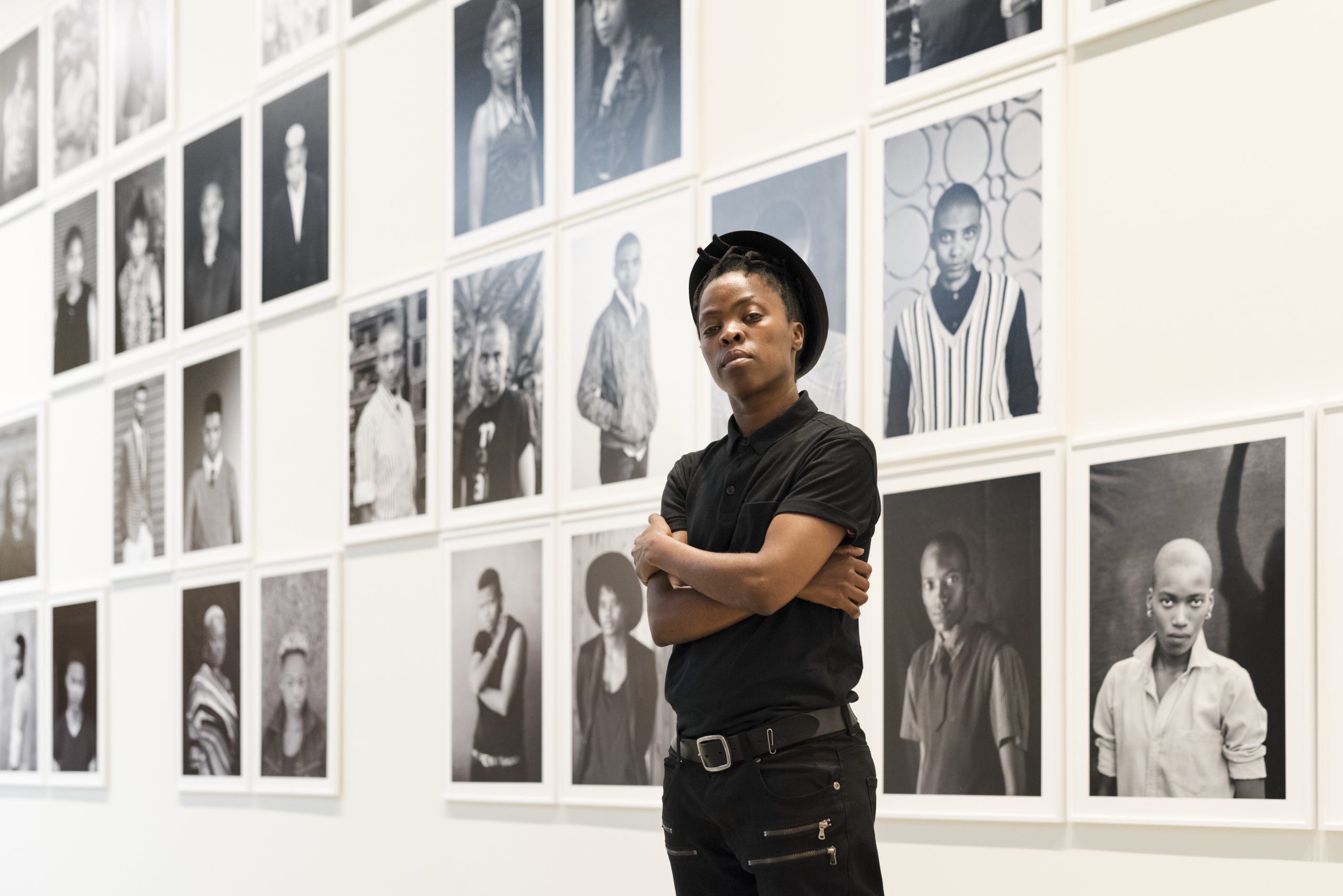
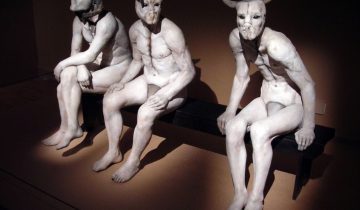


 No products in the basket.
No products in the basket.